Questions and answers – simply
1. What did the SAO audit?
The SAO – based on its statutory obligation – examined if relevant legal requirements were met by parties which obtained at least 1% of the total number of valid votes cast on party lists, and by national minority self-governments that gained representation in parliamentary elections.
2. Whom\which organisations did the SAO audit?
All nominating organisations that obtained at least 1% of votes. Therefore, it is not true that SAO examined only opposition parties.
3. Why does Anna Donáth, Member of the European Parliament (Momentum, Renew Europe) talk about another, second „serious fine” this year? Did the SAO conduct several audits?
No. Presumably, Anna Donáth considered the partial draft report previously sent to the political parties for commenting as the final report. Compared to this, she may have thought that the final document published on 20 February 2024 contained new findings. The SAO, as after every election, conducted one sole audit in the field of campaign financing.
4. Did the SAO also examine the Everyone’s Hungary Movement (MMM)?
The SAO did not examine MMM. Neither the organisation itself, nor its financial management. MMM was contacted as an organisation supporting the audit, because the head of the Movement – who was also the prime minister candidate of the opposition coalition – made a statement after the elections according to which the Movement provided direct financial support for the campaign of the parties cooperating with it. This is unlawful, it implies illegal campaign funding. As part of assessing the parties the SAO of course had to request MMM’s documents related to campaign financing (invoices, contracts etc.).
5. What did Péter Márki-Zay say?
Among other things, he said: “There was an account of MMM which served the operation of the central campaign. (…) of which there were candidates whom we supported, there were publications which we supported, as well as motor vehicles, sound trucks and robocalls, IVR campaigns and so on.”
This is clearly considered to be illegal campaign financing by law, therefore SAO contacted MMM in order to clarify the Movement’s role in supporting the campaign.
6. Why did this need to be investigated?
Due to among other things, the law stipulates that a political party shall be prohibited from accepting contributions from abroad, and legal persons and organisations without legal personality shall be prohibited from providing asset contributions to political parties, while a political party shall be prohibited from accepting asset contributions from legal persons and organisations without legal personality.
7. What did the audit of the SAO find?
The MMM and the political parties participating in the opposition cooperation coordinated their campaign activities by setting up a campaign council as well as nominated a joint candidate for prime minister. The SAO found that during the campaign, MMM partially paid for the production of the joint posters, flyers and publications of the political parties from the support received from abroad, and partially covered the costs of the joint events. This support was accepted by the political parties participating in the cooperation, thereby breaking the rules on prohibited political party financing.
The amount proved to have been paid by MMM and accepted by the political parties is HUF 261.26 million. With regard to an additional HUF 1,412.26 million the SAO contacted the National Tax and Customs Administration of Hungary (NTCA), the investigation of which is in progress.
8. Thus, MMM did not provide direct funding for parties. Isn’t it regular this way either?
No, it is not, and neither is parties accepting any kind of asset contribution from legal entities or from abroad. It is not allowed for legal entities to finance posters, leaflets and events for parties. That is exactly what happened in case of MMM.
9. Didn’t some organisations supporting government parties do the same things that are now holding MMM accountable for?
No. On the government and opposition side, many organisations have carried out activities that could be considered campaigning. This is not forbidden, freedom of expression covers, even in the case of legal persons, activities that are likely to influence the will of voters. On the other hand, it is forbidden to support the campaigns of political parties in the form of financial or in-kind contributions, as this constitutes illegal campaign support.
The allegation from the parties, which are otherwise have committed serious violations, that the SAO „looked the other way” in the case of the governing parties and the Civil Union Public Benefit Foundation (CÖF) and Megafon is untrue. The SAO applied exactly the same scale and methodology to all the parties that put forward candidates, and examined the merits of whether they had complied with the legal requirements in the financing of their campaigns.
As far as illegal campaign funds are concerned, there are fundamental differences between the activities of MMM and those of organisations supporting government parties:
- Péter Márki-Zay, the President of MMM was the joint prime minister candidate of the six-party coalition. The prime minister candidate of the governing parties and the leader of the national list of the governing parties did not hold any position in either CÖF or Megafon.
- The parties of the six-party coalition and MMM announced in a public statement that MMM and the parties concerned had set up a campaign council to manage their joint campaign. There was no information, no statement, no announcement of public interest that would have indicated a similar formalised, coordinated campaign organisation cooperation between the governing parties as well as Megafon and CÖF.
- During the campaign, posters, leaflets and publications have appeared with the logos of the six-party coalition parties and MMM, and campaign slogans were also common. The billboards, leaflets and publications of the governing parties did not contain any design element referring to CÖF or Megafon, just as the campaign materials of CÖF and Megafon did not contain any logos or signs identifying the governing parties.
- During the election campaign period, there were several events whose costs were paid for jointly by the six-party coalition and MMM, as evidenced by supporting documents. The SAO has not received any documents, receipts or declarations indicating that the costs of campaign events organised by the government parties were paid in whole or in part by CÖF or Megafon instead of and in the interest of the parties.
- The prime minister candidate of the six-party opposition coalition, and also the President of MMM, has made a number of statements and given interviews that are available to everyone, which clearly indicate that MMM has supported the campaign of the six-party coalition with significant financial resources. Neither the leaders and representatives of the CÖF nor those of Megafon have made any similar statements about financial support for the campaign of the governing parties, and the SAO has not received any such notification of public interest or information.
In the first phase of the SAO’s audit, the suspicion that MMM’s activities went beyond the freedom of expression became clear, as the specific financial contribution to the parties seemed to be confirmed. In contrast, in the case of CÖF and Megafon, no such interconnection of persons, coordinated campaign activities, unified use of campaign funds or assumption of campaign expenditure could be identified.
10. Parties state that they were not aware of MMM’s such activities, they did not accept the financial contribution of MMM.
This statement is contradicted by the parties’ own declarations and documents examined by SAO. The fact that posters, leaflets, publications and events were financed by an organisation outside parties, had to be familiar for every party. Even if not, the fact that someone else covered for the costs relieved every party, thus financial advantage was accrued by it.
11. Whom does SAO will penalise on this basis and to what extent?
SAO does not penalise anyone, it cannot impose fines, but it establishes the amount of the illegal funding accepted. Parties are obliged by law to pay this amount in the budget and their state subsidy will decrease by this amount. The SAO has no discretion as to the legal consequence.
12. Why is the established amount equally “distributed” between parties, even though they are not of the same size?
Because the common campaign activities mean that they serve parties’ interests to an equal extent. Every party is interested in the success of other parties as well, on this basis the only logical solution is to pay in equal shares. Of course, parties may agree among themselves in a different way as well, but it goes beyond SAO’s audit.
13. What about the other parties?
Simultaneously to the partial report, SAO also published its report on the audit of the other parties. This reveals that SAO did not establish illegal party funding in case of the other audited parties.

